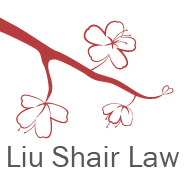What do I do with my Estate Plan if I get divorced?
When clients are married (or become registered domestic partners), their typical Estate Plan includes a joint trust with their spouse that delineates their wishes should they become incapacitated or pass away, in addition to wills, financial powers of attorney, and health care directives. In California, having a joint trust is possible because when individuals are married to each other, they have community property and also have certain tax benefits together such that they can combine their assets without it being considered a gift.
If a set of clients decides to get divorced or separated, then they will have some steps to handle for their joint Estate Plan. Some of these steps will require that the separation or divorce be finalized before they can take place and there are some steps that a client can take during the process. Please note that the attorney that you did your joint Estate Plan may have a conflict of interest in speaking with you individually if you are still married or unless they get consent from your spouse/ex-spouse.
While waiting for the separation or divorce to be finalized, you may decide to change your incapacity planning documents (e.g. Power of Attorney, Health Care Directive) to reflect who you would trust to manage your financial or health care decisions if you were alive and no longer had mental capacity. During this time period, however, you may not be able to move around assets.
When there is a final order dissolving the marriage and severing the assets, then it will be clear which assets belong to whom. These assets will need to be retitled into each person’s respective name and thus would be removed from the joint trust. Your ex-spouse will legally no longer be a heir to your estate or entitled to act on your behalf in your incapacity or absence, but there can still be issues if you have not appropriately taken care that your assets are appropriately disconnected from your ex-spouse. It is highly important that you update the beneficiary designation for any accounts designating the ex-spouse as beneficiary directly through the financial institution; financial institutions must follow the designation on file, even if you are no longer married. Though there may not be assets funded to the joint trust by this point, it is still prudent to revoke the joint trust, making clear that the trust no longer exists.
At this time, you are able to set up your own individual Estate Plan dictating your wishes. You can start the process with an attorney prior to the divorce being finalized, but the trust would not be able to be funded. There likely will be many changes from the joint trust so please keep in mind that you would be going through the full Estate Planning process again. Your attorney would not be able to merely amend the joint trust and make it your individual trust. When your Estate Plan has been completed, you will need to fund your individual trust with your assets.
Though this process can be stressful, it is vital that you take the steps to secure your legacy and ensure your Estate Plan still fits your needs.
Note: I am not a Family Law attorney and am not representing what the divorce/separation process may look like for your family. Additionally, this blog post is not considered legal advice and reviewing its contents does not constitute an attorney-client relationship.
